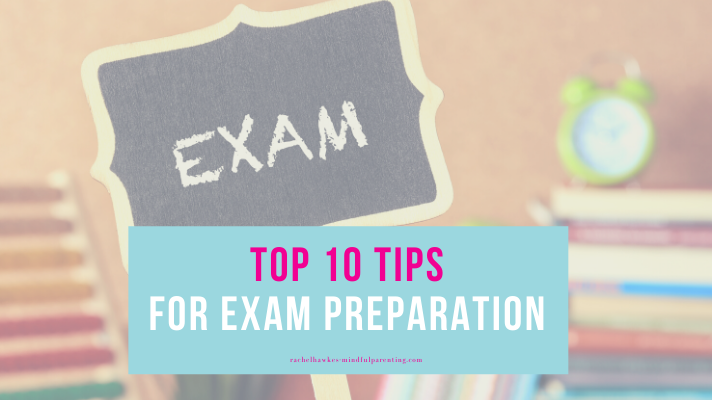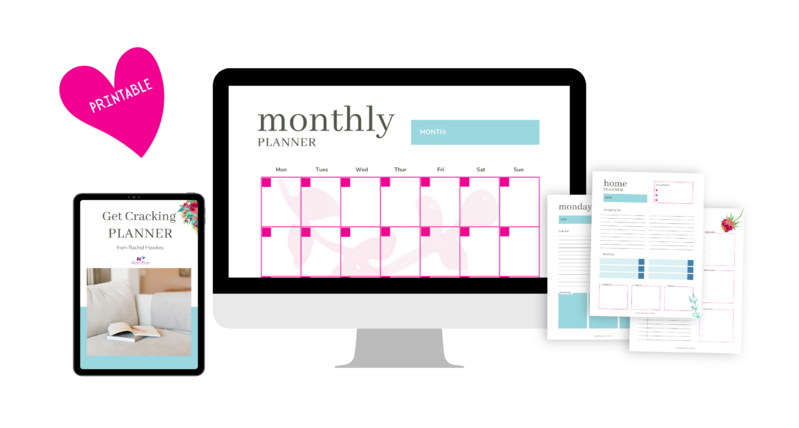Top 10 Exam Preparation Tips

No matter what age your children are, there is ALWAYS a range of things we can do to help them prepare for exams.
I wanted to create something simple, without having lots of steps to follow or to create more work for you, or for them. I have found that homeschooling my girls at this exam stage to be much more time consuming than I had bargained for.
I hope that these techniques, that we have tried to put in place can help you and your children too.
10 tips to prepare for exams
- Start your revision early
- Organise your study time
- Look after yourself during study and exam time
- Vary your revision techniques
- Vary your locations of study
- Take regular brain breaks
- Know your exam papers
- Make sure you know the practical details about your exam
- Keep your language positive
- Get plenty of sleep and keep hydrated
Starting your revision
How to organise your study time
- Break each subject down into topics
- Plan topics into a month
- Break the month into weeks
- Break those into days
How to look after yourself during exam season?
How to revise?
Where to revise
Take brain breaks
What is on your exam paper?
This has been a challenge during home schooling, as I had kind of assumed that this was covered in the tutoring and courses the girls were doing. It was, but not in a clear defined way.
Make sure you know what an exam paper covers, how that paper is broken down and the marks associated with each question. Then you can help your child work on their strengths not be worried about what questions are coming.
Top tip - download previous papers. In the UK every exam board provides access to past papers, I know from others in Europe that they are also able to access them. Get some, and go through the structure of EACH paper as part of your revision strategy.
What happens on exam day?
Do not let simple logistics be a stress. Work out the days, times and how you are getting to an exam long beforehand. If they are going by public transport, ensure that they are all running normally.
What do they have to wear?
What equipment do they need to bring?
It all sounds so simple, but we can often overlook these points, in the assumption that our kids will know (which can prove to be a disaster). We want to empower our kids at these key stages, but we also need to acknowledge that they often just assume that 'adults' will have these details covered.
Check before and then check again!
The power of positive language
This is a BIG one for us in our house. How we use language is central to how we view ourselves and others. Language can be positive and empowering, or negative, belittling, hindering self-esteem, self-confidence and self-belief.
I CAN DO THIS - a key affirmation that I have been asking my girls to repeat. Believe in the words you speak.
Words have power.
Affirmations are an amazing tool, for our children and ourselves. I have designed an affirmation pack for the Teenagers and also compiled a HUGE affirmation bundle that you can print out, it includes lots of blank cards, so you or your kids can create your own affirmations too, it has over 100 printable affirmations, suitable for all members of the family
Resting during exam season
As our kids get older, they feel they need less sleep and want to stay up later. This is part and parcel of their teenage years, but we need to help them realise that they need to be able to switch off at the end of the day.
If they are not getting sufficient sleep at night, it will begin to impact how they study during the day.
Resting at night will ensure that their brain's are able to be fully functioning the next day. This means you may need to be asking for gadget free times past a certain time. The evidence is showing that we need to be OFF screens for 1 hour before we are going to sleep, otherwise our brains are being tricked into thinking it is still daylight. Again, this is true for us parents too. Ditch the screens for one hour before you go to sleep, it will help you get to sleep easier and lead you to a deeper sleep quicker too.
I would also add another TOP TIP - keeping hydrated during the day. Plenty of water will help with brain function and can often slip when we are going through periods of focus.
And breathe.........
I love using breathwork, and if you would like to know some great ways of using the breath to help with exam nerves, overwhelm or increased stress then check out the Facebook Group, where I have posted some really simple breathing techniques that we use in the lead up to exams.
Good luck on your exams, and remember that being mindful is a journey, we are all working on our parenting and it is as much a learning experience for us, as for our kids.
x
Rachel

Categories
- Affirmations (6)
- Things To Do With The Kids - Mindful Makes (13)
- Things To Try At Home (31)
- Anxiety - Tools For Parents & Kids (12)
- Mindfulness Techniques For Kids (26)
- Mindfulness Techniques For Adults (5)
- Mindful Parenting (37)
- Mindful Living (10)
- Mindful Working (3)
- Work Life Balance (14)
- Babies and Beyond - Mindful Mums (4)
- Christmas (6)
- All Articles (40)
Lots of Mindful Parenting FREEBIES
if you would like to grab regular freebies including printables, then please join the mailing list.
Mindful Parenting Printable Packs
Just part of the products available, affirmations as such an easy mindful activity to add into the day
Affirmations For Mums
Printable daily positive affirmations
20 Daily Positive Affirmations with 4 blank cards for you to create your own affirmations.
GIANT Affirmations Bundle
Over 100 Affirmations!
Your Giant Affirmation Bundle with over 100 affirmations!
Printable affirmations for:
- Kids
- Tweens
- Teens
- Mums
- 30 Days of Affirmations
- 10 blank cards to create your won




0 comments
Leave a comment